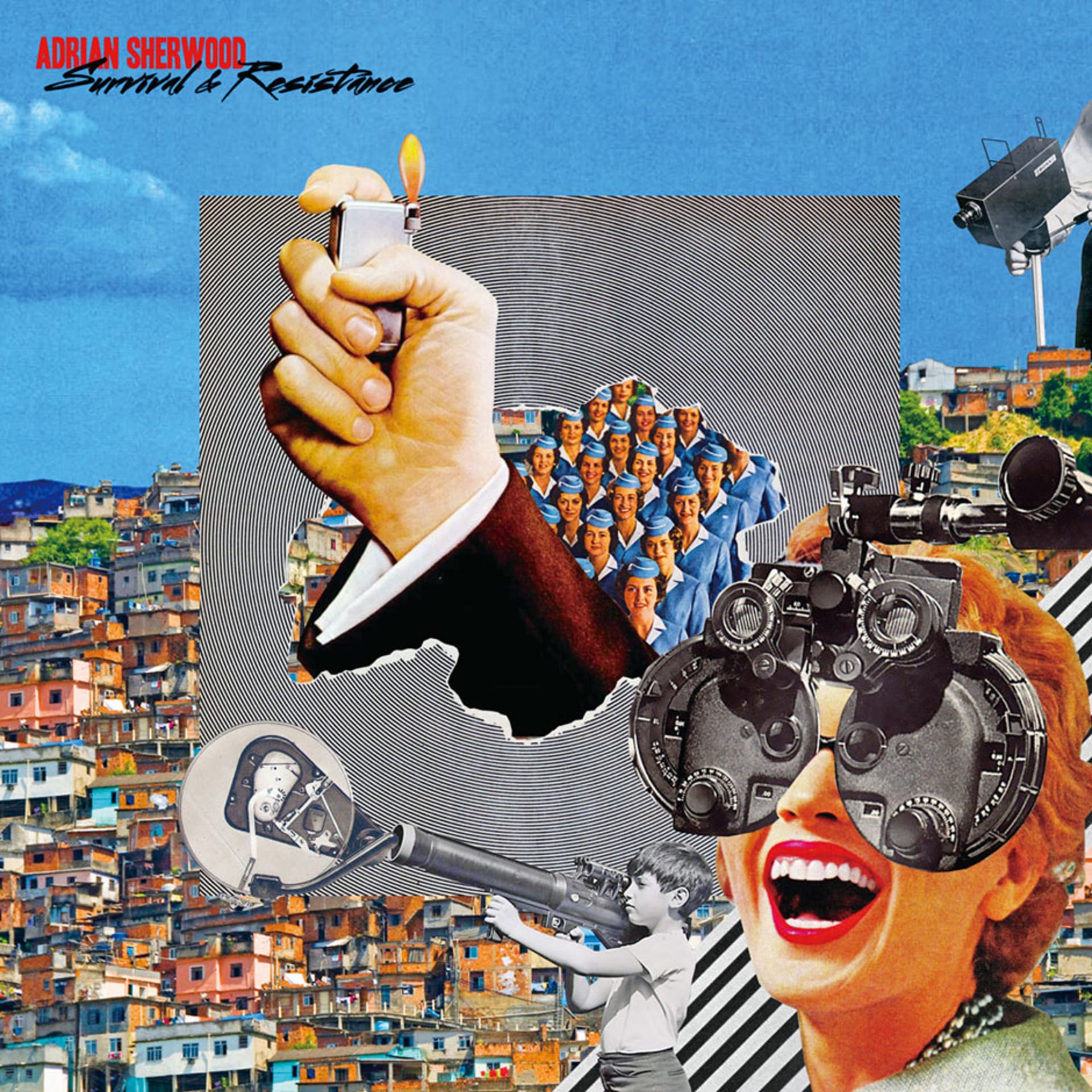
Alec Empire recommends Adrian Sherwood’s Survival & Resistance
It was in 1993 that I first witnessed Adrian Sherwood using the mixing desk as an instrument. He was in the room next to us at London’s Roundhouse Studios where we were working on tracks for Atari Teenage Riot. I remember so clearly how he was artfully layering sounds and using old delays and phasers to create this wide-open space—dubbed-out sonic landscapes is one of his specialities, of course. If you listen to seventies dub like Lee Perry’s “The Good, the Bad and the Upsetters” it all sounds very compressed, compared with Sherwood productions, where you can clearly hear each element. It’s sound as vision. Listening to him work that day, it became obvious that Sherwood came from a generation for whom experimentation was crucial. You see, in the pre-sampling eighties, everyone seemed to be thinking about how to create not only weirder, unexpected sounds, but also one’s that aren’t so easy to replicate—individualized sound design. For example, there’s a credit on the new album that lists legendary jazzman, Skip McDonald, as a “tuning consultant”. The explanation is that while working on Survival & Resistance, Sherwood and his collaborators went to Brazil and recorded traditional instruments, with Skip tuning them so low that they sound like synths. Tuning was always one of the first parameters that musicians could really play with: take a guitar, tune it down and the frequencies become more rhythmic and drum-like. That’s Sherwood’s organic approach to synthesis.
After I got about halfway through Survival & Resistance, I began to wonder why it is I love Adrian Sherwood, but find dubstep and new generations of dub-influenced subgenres so characterless. I guess one of the reasons is that so many dubstep producers use the same software, which naturally limits their imagination and sonic capacity. I don’t just mean the sounds themselves, but also their conceptual wherewithal that supports the pure music. In contrast, the expansive, scorched landscape of Survival & Resistance courses with a real sense of dread, particularly on “U.R. Sound”, where ominous chords are buttressed by currents of electrical interference. This is balanced out by a kind of spirituality that is specific to Sherwood dub—exemplified by the meditative vocals of Rastafarian preacher Ghetto Priest on “Trapped Here”. That’s not to say that there aren’t dubstep elements on the album, like “Two Semitones and a Raver” with its wobbly bass line and quick drops, but as usual Sherwood’s music is much broader than genre-specific categorization, which of course is the result of all the people he’s working with: Lee Perry, Skip McDonald, Doug Wimbish . . . You just can’t recreate that in the studio with one artist and some software.
Like Atari Teenage Riot, Sherwood is a political artist and through his On-U Sound label he has championed and produced music with a black Jamaican heritage; a political agenda for a postcolonial Britain. There’s no doubt it influenced ATR’s Bass Terror Soundsystem, although people might argue that what we did was harder and noisier. On-U is all about creating a sense of unity, but one loaded with social criticism; bringing people together without compromising the political message. If we as listeners are happy to merely stand back, the music says nothing and we will find ourselves left behind. Sherwood has a direct and critical political message, and this is something the dubstep scene urgently needs. Releasing Survival & Resistance amidst the global financial crisis and in the wake of a first wave of Occupy, Sherwood reminds us what soundsystems were, and what they should still be about. I hope young people listen, because music as a medium of political critique is perhaps more relevant now than ever. ~
–
Alec Empire is a founding member of the Berlin-based digital hardcore band Atari Teenage Riot. He currently runs two labels, Digital Hardcore Recordings (established in 1994) and the more recent Eat Your Heart Out. Aside from being a prolific solo artist, he is also an avid remixer and DJ. Empire was featured in the Spring 2011 issue of Electronic Beats Magazine in conversation with Wired staff writer and hacker-ethicist Steven Levy.
–
This text appeared first in Electronic Beats Magazine N° 31 (Fall 2012). Read the full issue on issuu.com:
Published October 12, 2012.
